Brexit: What needs to happen next for Wales?
- Published
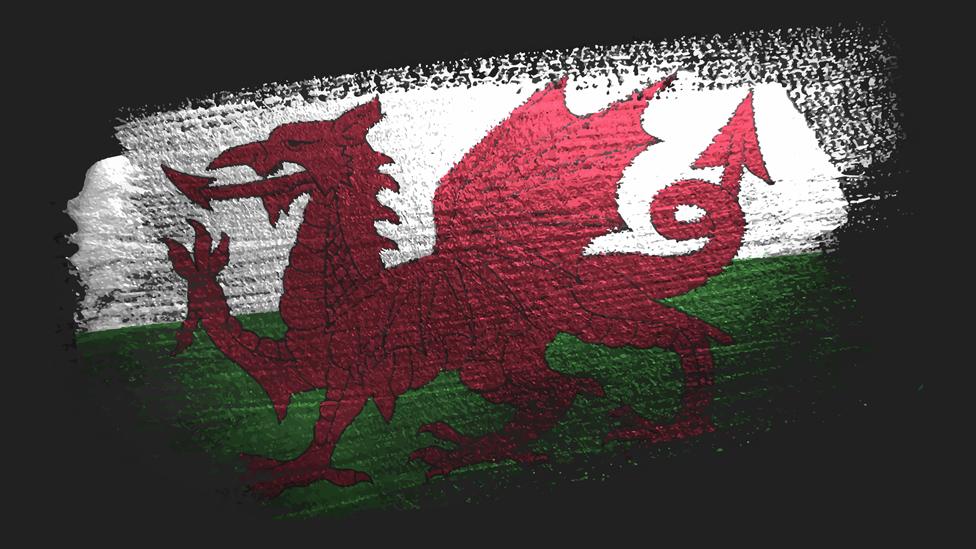
Ahead of a crucial House of Commons vote on whether to accept a deal to leave the European Union, what do those in key sectors in Wales, including business and farming, want to see happen?
MPs will vote on 15 January on whether to accept the legally-binding terms of withdrawal negotiated by Prime Minister Theresa May, as well as a framework of future relations with the EU.
Economy
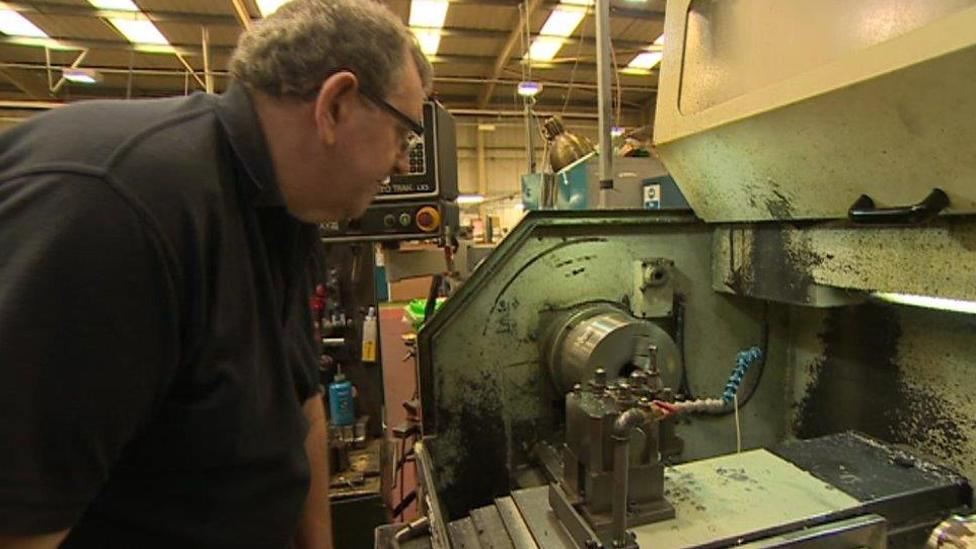
Magor Designs's customers include Ford, Jaguar Land Rover and British Airways
Magor Designs in Resolven near Neath is an engineering and tool-making company supplying a range of car companies.
Managing director Ewan McConnell voted to remain in the EU and worries that the UK is still not prepared for what would be a fundamental operational change in the way our economy works.
What are your hopes and fears about this vote?
"I hope that Theresa May's plan is adopted because I think there is a great need for a plan," he said.
"Any plan is better than no plan. I fear a disorderly exit which would be catastrophic and I don't think that there is an understanding of the likely level of disruption and the consequences of an unstructured unplanned exit."
Mr McConnell said his customers in the car industry are facing a huge challenge and Magor Design's long-term future is largely dependent on whether they are successful or not.
As well as long-term questions about whether car firms will still have an appetite for manufacturing in the UK, there are short-term issues such as logistics and administration if the UK is no longer in the EU single market.
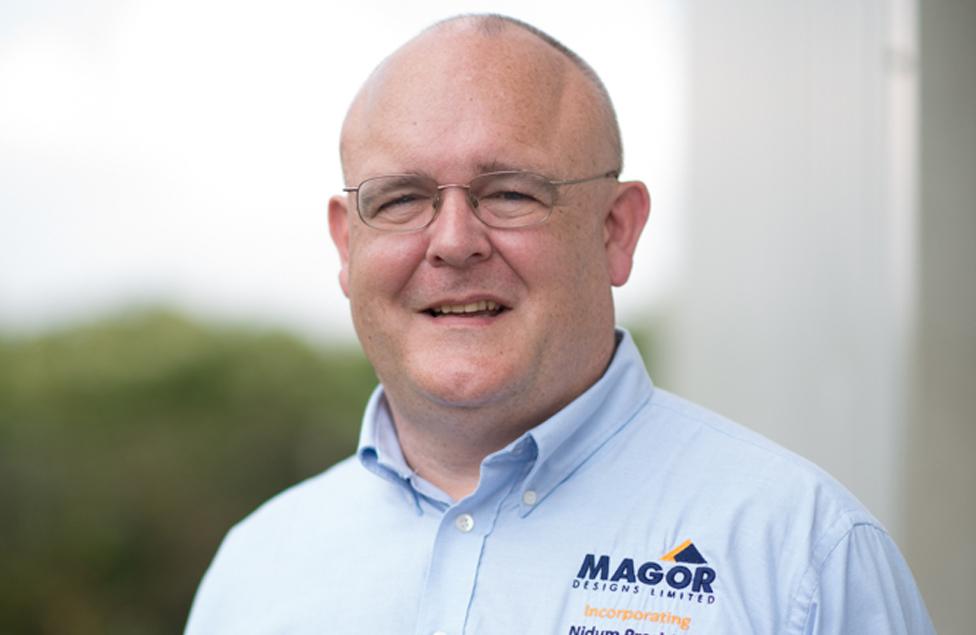
Ewan McConnell said in an ideal world there would be no tariffs
What should happen next?
"If we are leaving we have to leave in an organised manner. The decision to leave has been made, we are leaving but how do you do that in a structured, least harmful manner?"
He added that he thinks it would be naive to assume there will be no tariffs on parts for the car industry but in an ideal world he would like there to be none.
"In the 1990s, I lived abroad and it made me realise that the world is a more collaborative, communicative place and we in the UK are hell bent of moving in a different direction," he added.
"I think we are going to see a sea change in our political landscape and I think the behaviour of our political classes is appalling."
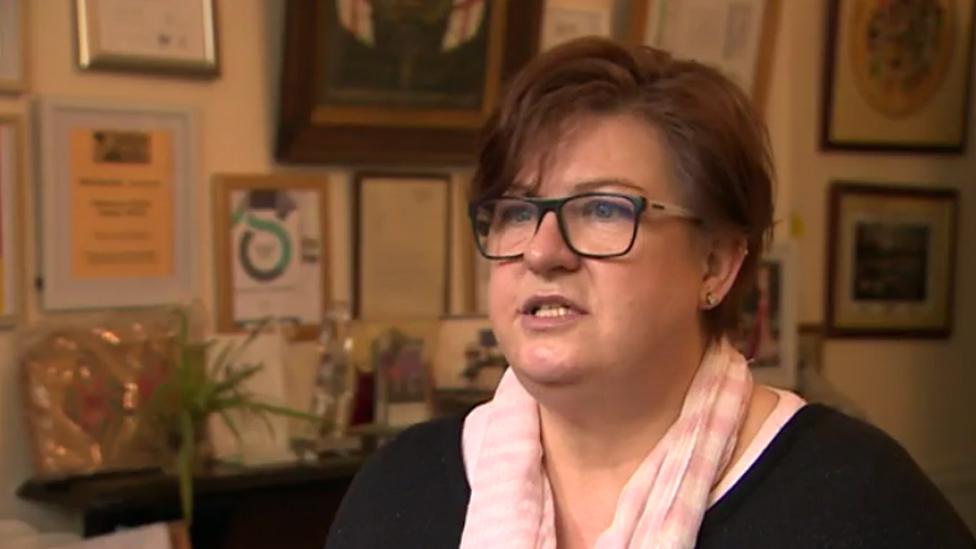
Jo Ashburner Farr's family business was founded in 1969
Jo Ashburner Farr is chief executive of Swansea flag-making firm Red Dragon Flags and voted to leave the European Union.
What are your hopes and fears about this vote?
Whatever happens - and if anyone tells you they know, they're lying - it's been a fiasco. It's like a messy break-up and divorce. We're an embarrassment. We managed a very close Welsh devolution vote without any of this drama.
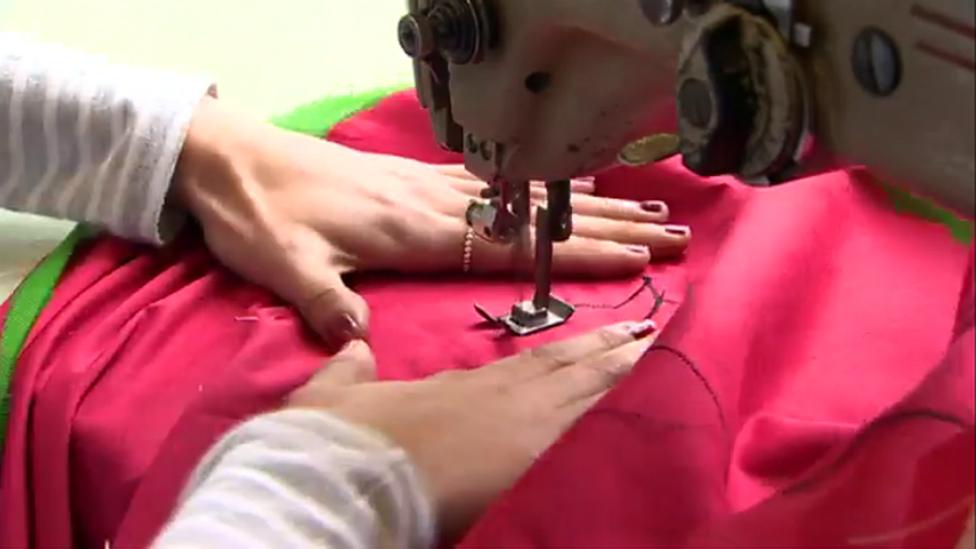
Red Dragon Flags does 40% of its business abroad - including Japan
What should happen next?
From a business perspective, 95% of businesses don't export and 5% are having kittens. I'm a small/medium-sized business. This has not been about the bread and butter. I export all over the world not just in Europe, with the internet, and we are open 24/7. I've got a deal in Japan to supply the flags for their patrol boats. The world is open for trade.
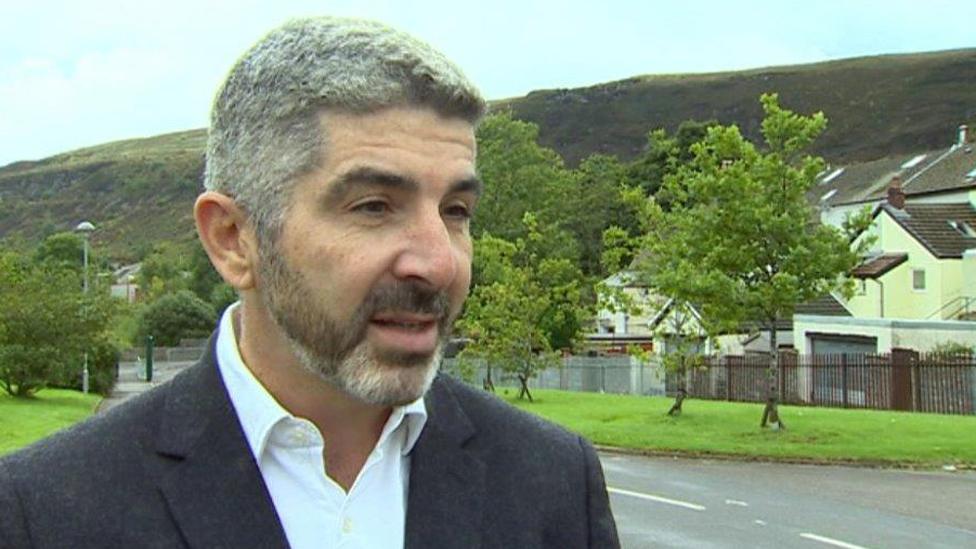
Derek Walker's firm gets EU funding and supports social enterprises in Wales
Derek Walker is chief executive of the Wales Co-operative Centre, a development agency which among other things supports social enterprises.
His organisation gets structural funds from the EU which help to fund community organisations and businesses across Wales. In total the Wales Co-operative Centre employs 70 people.
What are your hopes or fears for the vote?
"Our biggest concern is continued uncertainty, its impact on the economy and the effects on the small businesses and organisations that we support," he said.
"If big business is unsure of its future that effects the social enterprises and co-operatives that we work with."
Mr Walker said his organisation is most concerned about the future of the special allocation of money - known as structural funds - that Wales has been getting because its communities include some of the poorest in Europe.
He said that although structural funds have not been perfect, it is clear to see that in many communities in Wales their impact has been positive.
He added: "Wales still needs this type of funding because we remain one of the poorest parts of the country. We will be looking at how Wales is supported in the future because we need equivalent support."
What should happen next?
"My personal view is that the last vote can't be ignored and any change to that vote would have to be put to the people through a People's Vote."

Food
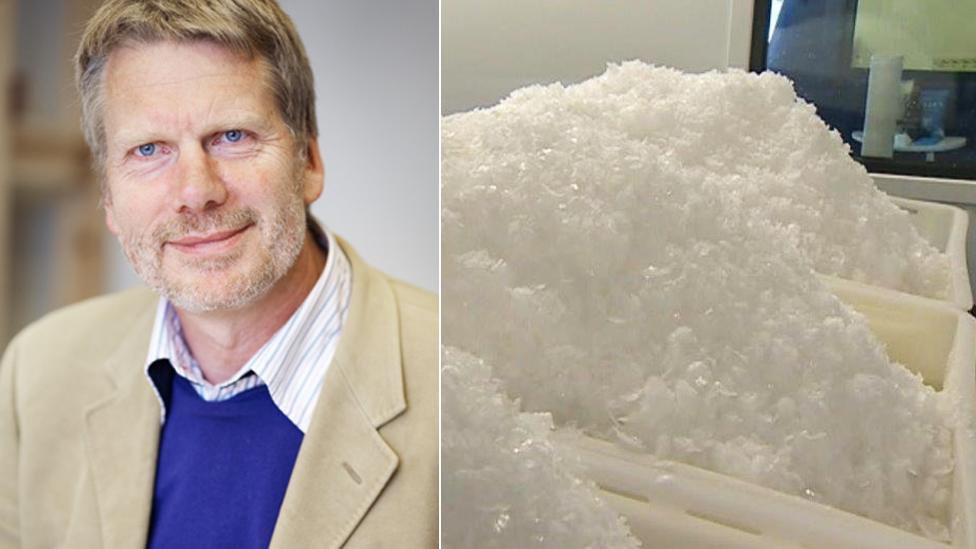
David Lea-Wilson is co-founder of Anglesey Sea Salt, which has big markets in Spain and Italy
Anglesey Sea Salt/Halen Môn employs 23 workers and Europe is a vital market.
Its sea salt comes from pure seawater and the method of crystallising and rinsing the salt.
It is also one of 15 food and drink names given special European Union protected status mark in Wales - under the EU Protected Food Name (PFN) scheme.
UK ministers though want to set up their own scheme that will provide "continuous protection" for domestic products but the company is concerned this would not carry the same weight internationally.
David Lea-Wilson and his wife Alison, who founded the firm, recently received MBEs for their work with local business.
What are your hopes or fears for the vote?
"We export a third of our salt and are beginning to lose customers because we can't give certainty of delivery after March," said Mr Lea-Wilson.
"We have built really close partnerships in Italy and Spain over the last 10 to 20 years. They feel uncertain.
"Our hopes are that the vote is defeated by a large margin. Our fears are that the motion is postponed, altered, changed or massaged so it just scrapes through - to save face - and we are forced to leave on the basis of a referendum that was based on some lies, some complacency by remain, and leave campaign was funded illegally."
What should happen next?
"That the ECJ (European Court of Justice) judgement is respected and that Parliament votes very soon to withdraw Article 50 allowing us to remain on the same terms. Then another referendum can be arranged covering a range of alternatives which will include second choices."

Farming
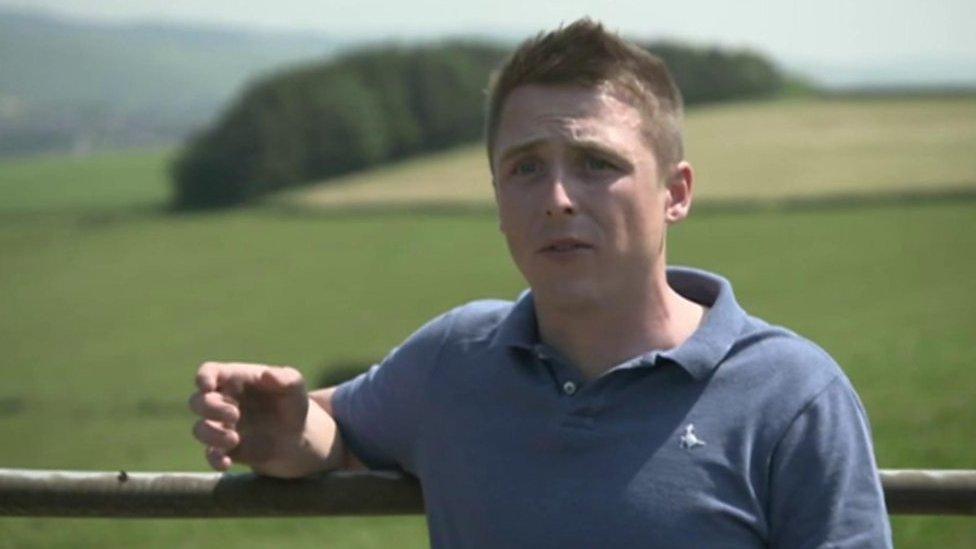
Jacob Anthony voted for Brexit, but says he has gone from "cautiously optimistic to a little bit nervous"
Earlier this month, UK Environment Secretary Michael Gove warned that a no-deal could mean "turbulence" for farmers including the potential for tariffs of 40% or more on beef and sheep meat.
Jacob Anthony is the fifth generation of his family to work on the 700-acre hill farm at Tondu, Bridgend and was voted young farmer of the year in the Farmers' Weekly awards in 2018. He voted for Brexit.
What are your hopes or fears for the vote on Tuesday?
"I've gone from being cautiously optimistic to being a little bit nervous.
"The way they've been behaving in Westminster has not filled me with confidence. I think we need something in place so we can try to plan ahead, away from this limbo we're in.
"There needs to be a deal for farmers for this transitional period so we don't go over a cliff in March."
What should happen next?
"We need to try to work with the rest of the world - I'd like to see us look at the emerging markets in Asia - but these deals won't happen overnight.
"We need a period of stability. But we also need to see more UK products consumed in the UK - ensure more of our food gets to the British public.
"[On regulations] there's got to be a level playing field and with food coming from other countries, we have to have the highest food standards."

Health
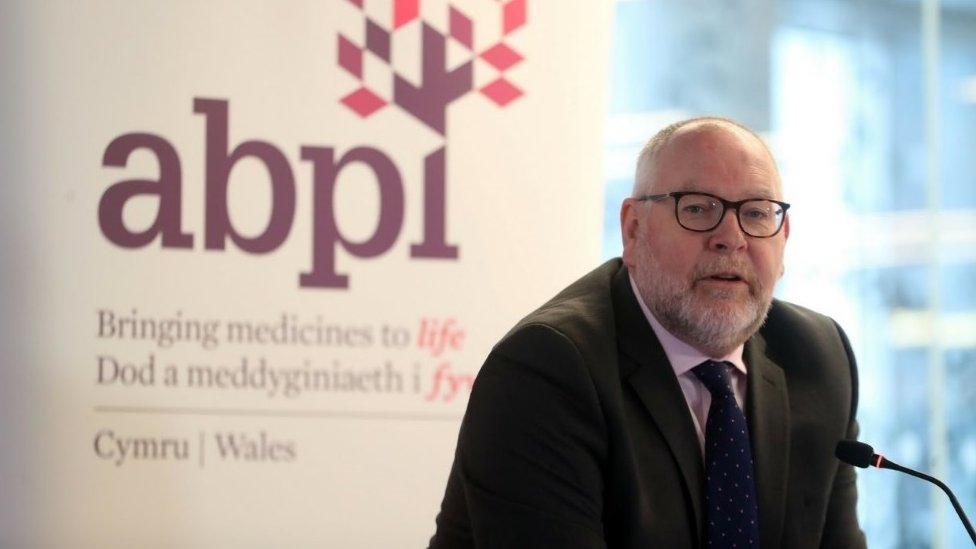
Dr Richard Greville says a no deal Brexit would bring "very serious challenges"
The prospect of a shortage of some medicines has been raised in the wake of a no-deal, including worries over price rises. The industry has called for more detail from the UK government., external
Dr Richard Greville is director of Association of the British Pharmaceutical Industry (ABPI) Wales and is also responsible for the distribution supply chain.
He said companies were doing "everything in their power" to avoid disruption to the supply of medicines in all Brexit scenarios.
What are your hopes or fears for the vote on Tuesday?
"One of our members has told us their production lines are running for an extra four hours a day and all weekend, to prepare enough supplies," he said.
"However, there are situations out of our control and stockpiling alone is not going to guarantee supply in the event of a no-deal.
"That's why we urgently need a deal based on co-operation to protect public health, control infectious diseases and manage medicine safety."
What should happen next?
"The focus of pharmaceutical companies is on making sure that medicines and vaccines get to patients whatever the Brexit outcome.
"A no-deal Brexit would present very serious challenges and this must be avoided and politicians need to find a way through the current impasse and reassure patients that medicines will not be delayed or disrupted come March 2019."
- Published8 January 2019
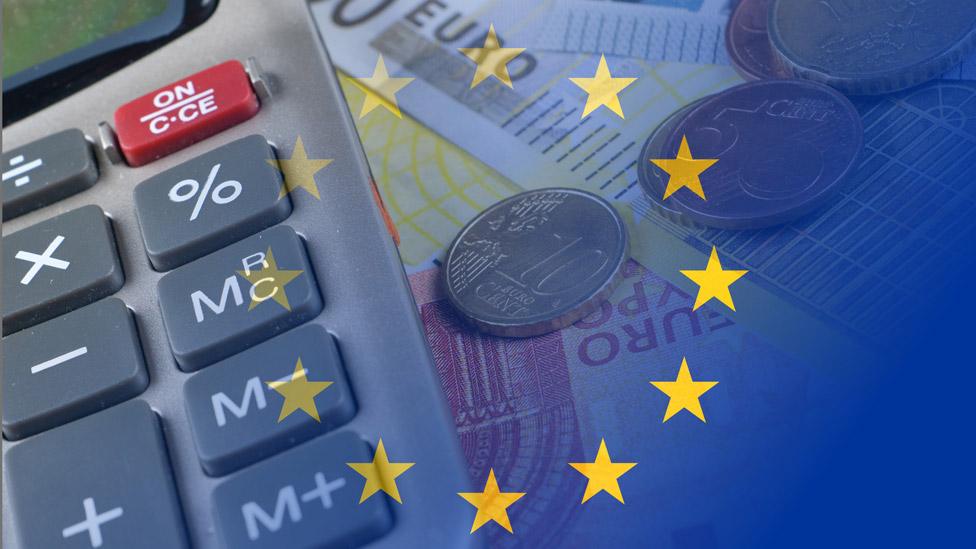
- Published25 November 2018
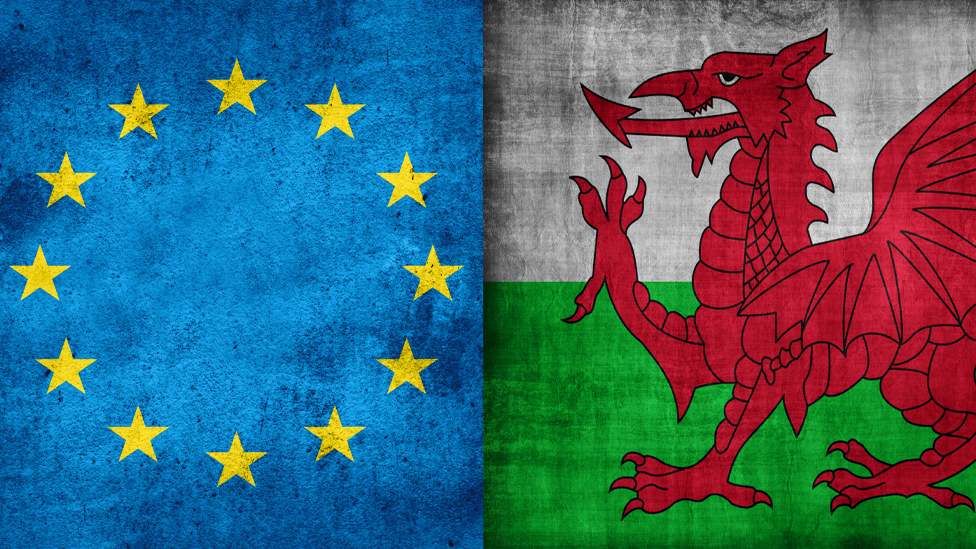
- Published30 July 2019
